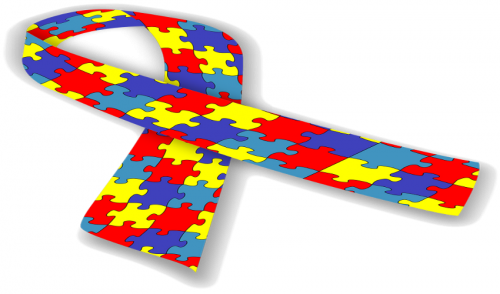Blog
Bulletin Board
Visit Us In-Store
April is Autism Awareness Month

- Share this:
- Share on Facebook
- Pin on Pinterest
- Tweet on Twitter
Autism is a childhood brain disorder that affects the social abilities, communication, and motor skills of children with the disease. It is estimated that 1 in every 88 children and 1 in 54 boys will be diagnosed with autism. During the month of April, organizations across the nation will join together to promote awareness of autism and the problems within the autism community.
Autism is a disorder of brain development that changes the way in which information is processed by nerve cells. The causes are not well known, but recent studies have shown that autism is caused by mutations in certain chromosomes as well as environmental factors that effect early brain development. Factors such as parental age, illness during pregnancy, and difficulties during birth can combine with these gene mutations and cause a child to develop autism.
There are many different types of autism and each one varies in severity. All forms of autism fall under the general disorder called Autism Spectrum Disorder (ASD). The different types of ASD are then broken down and further classified on what is known as the autism spectrum. Autism Disorder lies on the most severe end of the spectrum while Asperger Syndrome, another common disorder on the spectrum, is much more mild. Every child with autism is different and faces different problems and challenges.
Although every child with autism is different, they all share some basic characteristics. Autism usually surfaces when a child is around 2-3 years of age. The disorder affects the way in which a child perceives the world around him, causing difficulty in communication and social interaction. He may be unable to play or talk with other children or adults, preferring isolation. Often the child will have repetitive behaviors and intense, focused interest on only a few specific things. A child with autism may be hypersensitive to their surrounds, things such as sound, smell, touch, and taste may affect them in a much stronger way. All of these symptoms make the life of a child with autism remarkably difficult.
Despite the fact that autism is the fastest growing developmental disability in the United States, autism receives less than 5% of the research funding of many childhood diseases that are much less common. During the month of April, autism support groups around the country will seek to raise awareness and funding for this confounding disorder. Show your support by donating money to the cause, educating your family and friends, asking your political representatives to support autism legislation, or volunteering your time to children suffering with the disease. Any of these things can make a real difference in the lives of children with autism.

Comments